The issue of how to increase stress resistance and learn how to deal with stalemate situations in such a way as to preserve your physical and emotional health, especially in the current situation, when stress has become an integral part of every person’s life was discussed during the training called Increasing Stress Resistance Of Journalists at the Zaporizhzhia Journalists’ Solidarity Center (JSC) of the National Union of Journalists of Ukraine (NUJU). During the event, a psychologist and practicing specialist of the All-Ukrainian mental health program How Are You?, Darya Boiko, offered journalists from the front-line areas a number of methods to overcome stress.
Today, the main cause of stress for Ukrainians is, of course, the war and the threats it carries. People are in constant tension – they feel fear of rocket attacks, react painfully to the loss of lives, to the destruction of our cities and villages by the enemy, and worry for their relatives and friends.
Dariya Boiko conducted a group therapy session for journalists, during which she taught how to overcome such a feeling as anxiety.
One of the methods is drawing. On one side of a sheet of paper divided in half, the participants of the training depicted a situation that caused them negative emotions, disturbed them, and evoked difficult memories. On the other part of the sheet, they drew a picture of the future they aspire to, in which they will be calm and comfortable. Of course, the drawings did not pretend to be artistic perfection. But the frankness of the authors of the works, most of whom survived the occupation and the horror of massive shelling of their cities, convinces us that it is quite possible to increase the individual level of stress resistance. And similar trainings contribute to this.
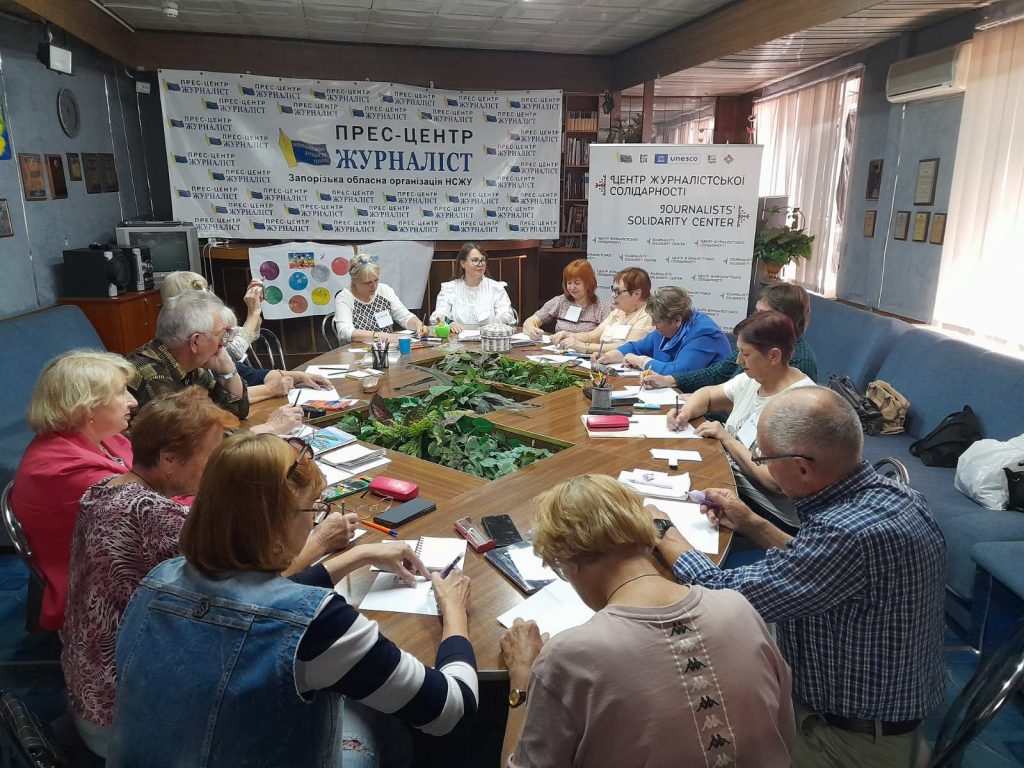
“During the training, we were looking for an antidote to anxiety, using various techniques, – says Nataliya Stina, the editor of the district newspaper Chervonyi Promin. “Where to get the strength to fight in order to live, how to keep calm – each of us asks ourselves. Stress resistance, as it turns out, can be boosted and trained like muscles. It would help if you started with the main thing: normalize sleep, reduce the influence of the information field, have a balanced diet, look for positive emotions, and work. And Dariya Boiko showed how to work on yourself.
“A very useful psychological exercise – a “safe place,” says Alla Shamrai, a radio journalist from Enerhodar. “You had to draw some place where you feel confident, calm, joyful, and always have a good mood. Such a territory for me personally is my home in my native Enerhodar, which is now occupied by the occupiers. I drew the interior of my apartment and my beautiful flowers, which I love so much… But while I was telling my colleagues about the house, tears came to my eyes. And this is a positive result, according to the psychologist, because the emotions that I constantly keep inside me, accumulating internal tension and stress, came out.”
“Each of the participants in the training found a lot of useful things for themselves in the trainer’s advice. That is very important because now journalists themselves, working with people affected by the war, mentally and physically traumatized, also help them psychologically,” says volunteer journalist Olena Karelina. “We need to know well how to help ourselves and the residents of the front-line areas where we live and work.”
Call the Zaporizhzhia JSC at 096 277 5352 (Nataliya Kuzmenko and Valentyna Manzhura, the Zaporizhzhia JSC coordinators). The Center’s address is 152 Sobornyi Avenue.
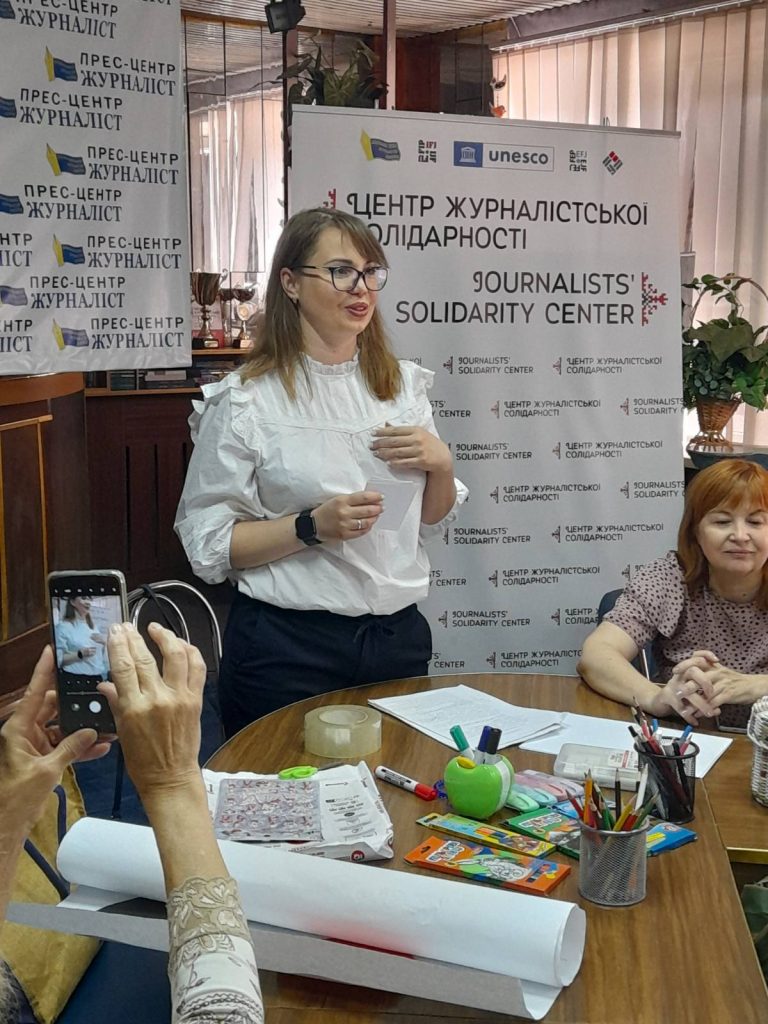
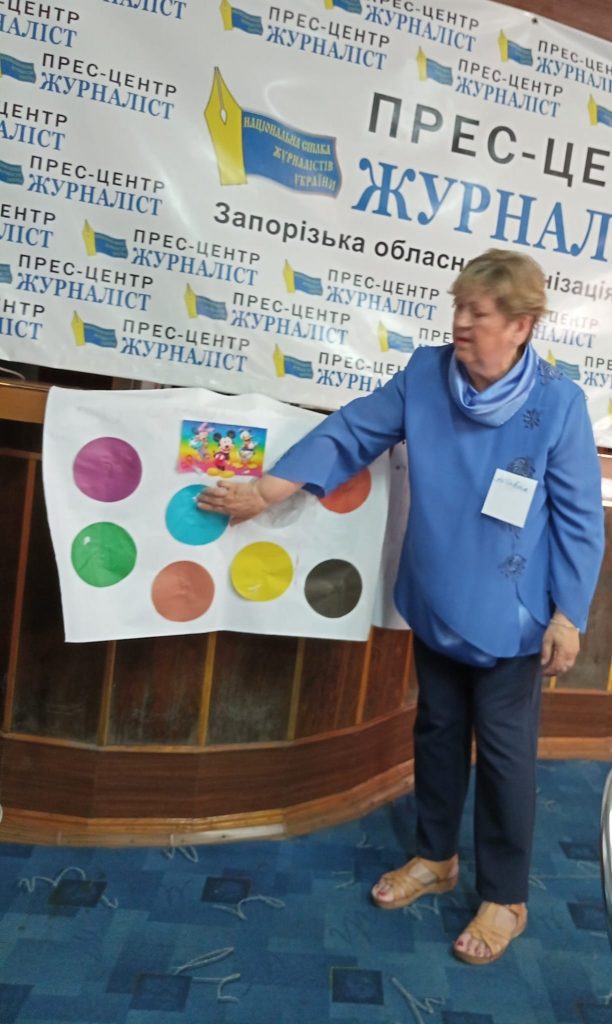
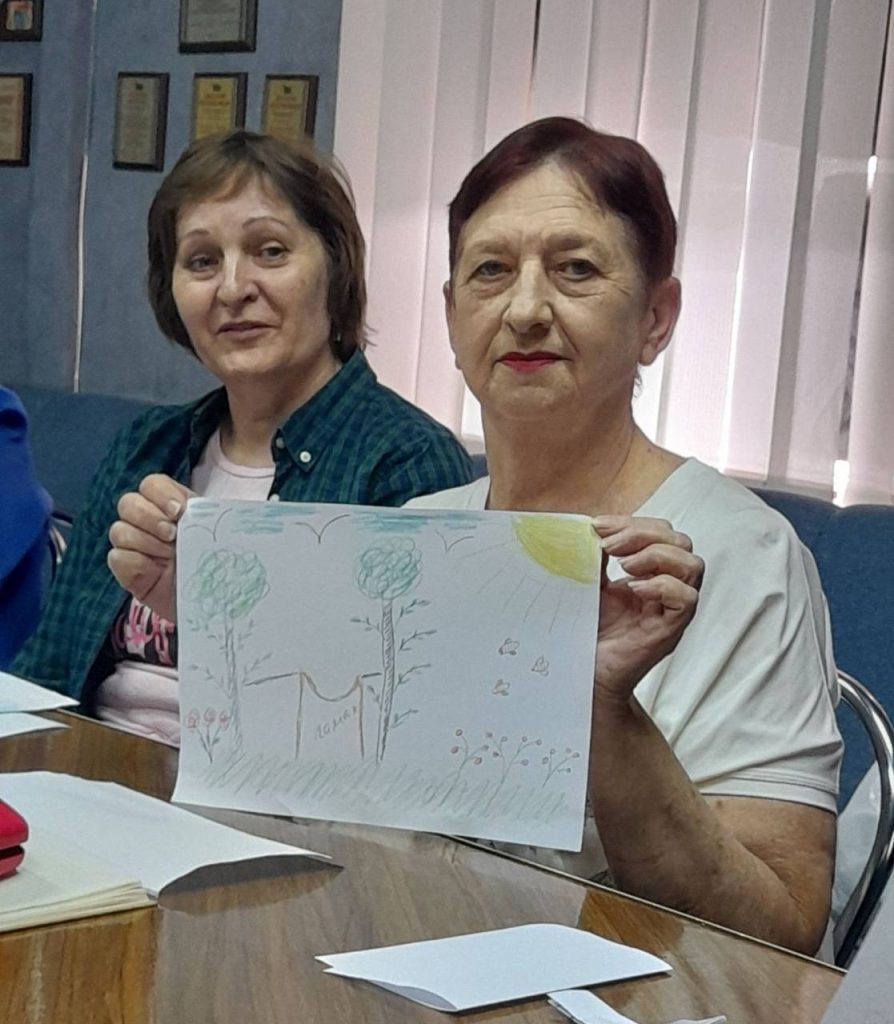
ABOUT JSC
The Journalists’ Solidarity Centers is an initiative of the NUJU implemented with the support of the International and European Federations of Journalists and UNESCO. The initiative is designated to help media representatives working in Ukraine during the war. The Centers operate in Kyiv, Lviv, Ivano-Frankivsk, Chernivtsi, Zaporizhzhia, and Dnipro and provide journalists with organizational, technical, legal, psychological, and other types of assistance.
ABOUT UNESCO
UNESCO is the United Nations Educational, Scientific, and Cultural Organization. It contributes to peace and security by promoting international cooperation in education, sciences, culture, communication, and information. UNESCO promotes knowledge sharing and the free flow of ideas to accelerate mutual understanding. It is the coordinator of the UN Action Plan on the Safety of Journalists and the Issue of Impunity, which aims to create a free and safe environment for journalists and media workers, thus strengthening peace, democracy, and sustainable development worldwide. UNESCO is working closely with its partner organizations in Ukraine to provide support to journalists on the ground.
The designations employed and the presentation of material throughout this digest do not imply the expression of any opinion whatsoever on the part of UNESCO concerning the legal status of any country, territory, city, or area or its authorities or concerning the delimitation of its frontiers or boundaries.
The authors are responsible for the choice and the presentation of the facts contained in this digest and for the opinions expressed therein, which are not necessarily those of UNESCO and do not commit to the organization.
Nina Derkach and Nataliya Vadymova
Photos by Tamara Bort and Nina Derkach

 THE NATIONAL UNION OF
JOURNALISTS OF UKRAINE
THE NATIONAL UNION OF
JOURNALISTS OF UKRAINE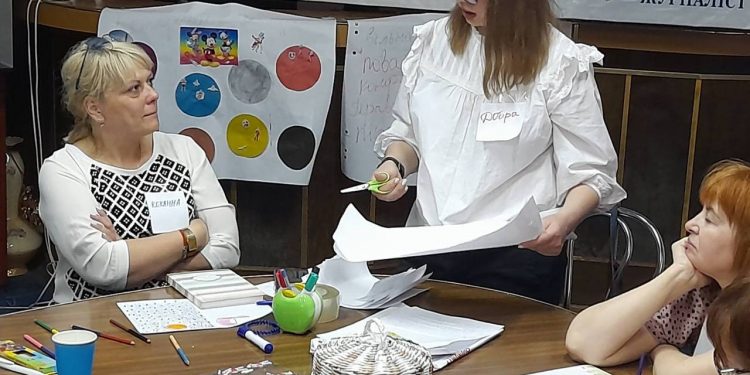
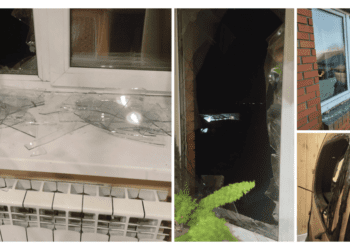
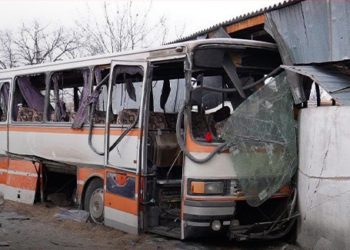














Discussion about this post